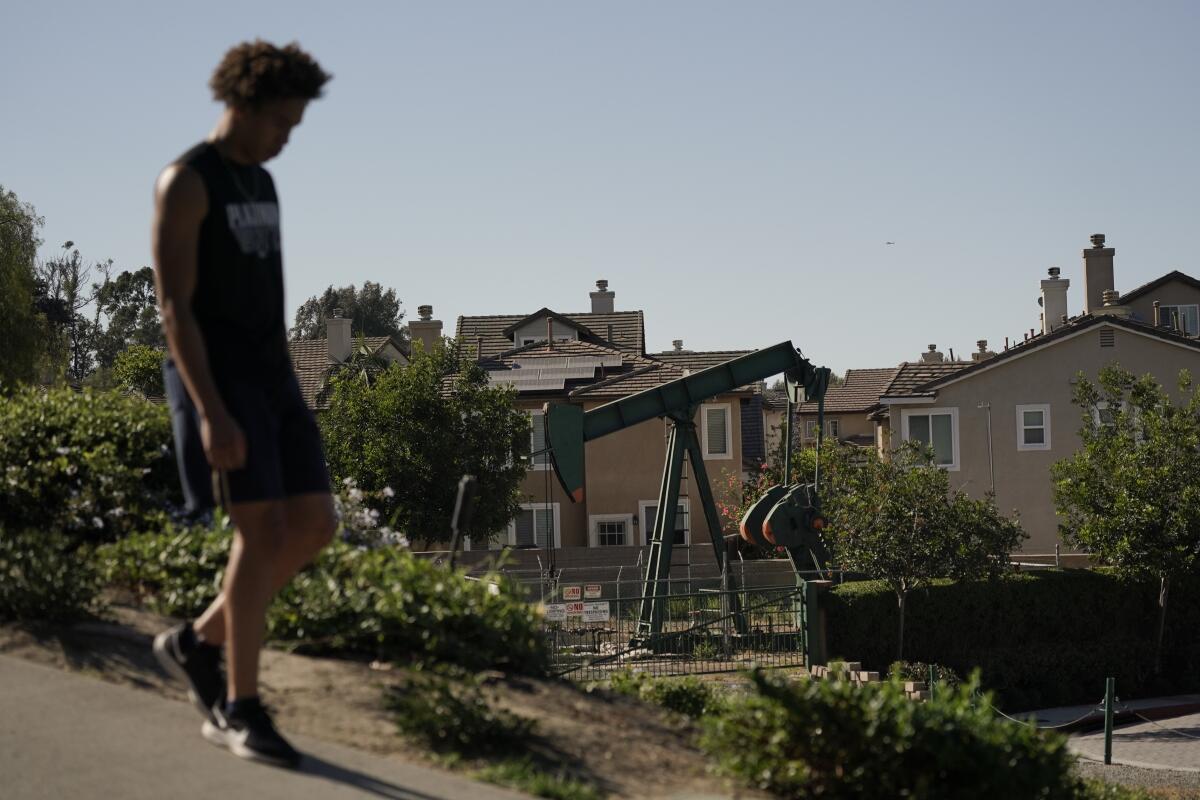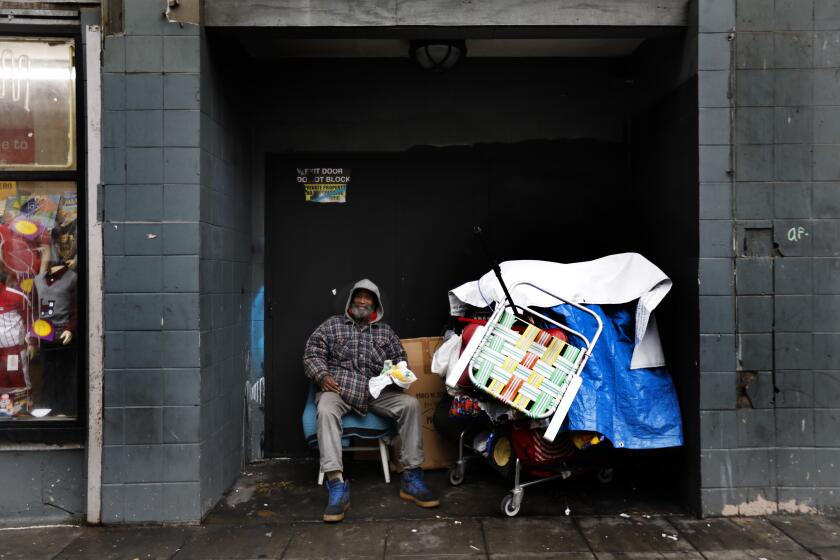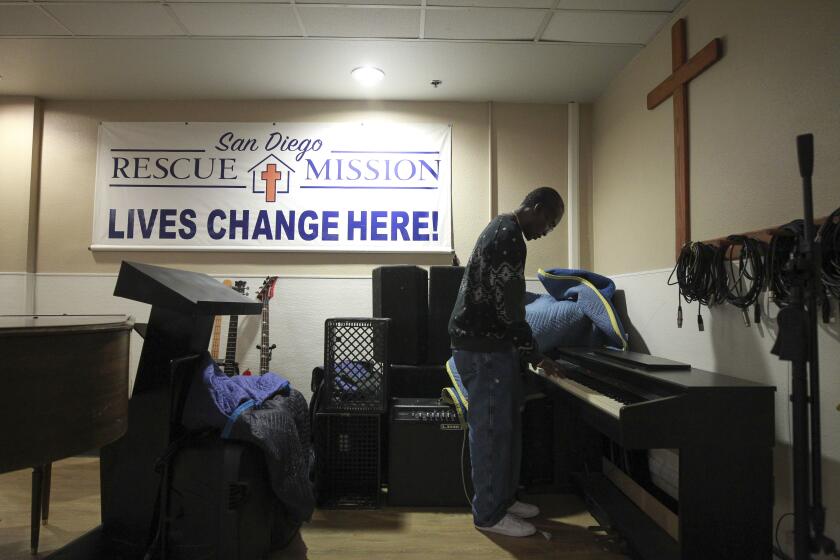Opinion: Health risks from oil wells in California must be reined in. Voters can do so this fall.

Nguyen, M.D., is chair of the American Academy of Pediatrics California Expert Committee on Climate Change and Environmental Health, and co-founder of San Diego Pediatricians for Clean Air. She lives in San Diego. Rhodes is a premed advocacy intern for the American Academy of Pediatrics California Committee on Environmental Health and lives in San Diego.
California is often billed as a national leader on environmental legislation to cut greenhouse gas emissions. This is true, which is why it can be easy to forget that we are also a major oil-producing state. The fossil fuels industry has large interests in oil wells in California — both those existing and the ability to add more. While greenhouse gases are a concern related to this industry, petrochemical byproducts are also very hazardous to human health. Today even populated areas are often targeted for oil drilling, which makes safety standards a necessity to keep oil wells a minimum safe distance from sensitive populations. Senate Bill 1137 — signed by Gov. Gavin Newsom in 2022 — would have provided just that: meaningful safety setbacks around oil wells to protect public health. Unfortunately, with the industry’s successful effort to delay SB 1137, California currently has nothing of the sort.
Unlike most oil-producing states, California has somewhat limited regulations on where oil wells can be placed. Hospitals, daycare centers, shopping malls and neighborhoods could all legally have an oil well pumping in their parking lot as far as state law is concerned.
But Senate Bill 1137 would have introduced a 3,200-foot health and safety setback for the permitting of new oil wells or existing well repairs. This means that new oil wells could no longer be constructed in dangerous proximity to populations, and that there would be no permits for the repairs of existing wells in these areas.
The bill would have amounted to the phase-out of all oil drilling in unsafe areas in California, protecting countless Californians from pollution around oil wells and related health impacts. Senate Bill 1137 was passed in August 2022, but the oil industry spent millions of dollars on lobbying to delay the bill and put it to a referendum for voters to approve. In November, Californians will determine the fate of Senate Bill 1137 via the California Oil and Gas Well Regulations Referendum and must decide whether they want this important protection.
Oil wells emit numerous air pollutants which can seriously impact people nearby. A 14-year Stanford research project found elevated levels of toxic particulate matter (PM 2.5), volatile organic compounds, ozone, nitrous oxide and carbon monoxide within a 2.5-mile radius of oil wells in California. Taken together, these can cause respiratory infections, asthma, preterm birth and heart disease. Additionally, the Environmental Protection Agency warns of air toxics emitted by the industry, including benzene, ethylbenzene and n-hexane. These are all known or strongly suspected of being linked to cancer and other serious health hazards. While the 3,200-foot safety setback might seem ambitious, it was recommended as a minimum by an independent council of experts. In 2021, the California Oil and Gas Public Health Rulemaking Scientific Advisory Panel told California officials that 1 kilometer — a little more than 3,200 feet — is the minimum distance to establish between oil wells and sensitive populations in order to protect public health.
The most important consideration for Senate Bill1137 may be the protection of children in our state. Children are at increased risk from all the pollutants found near oil wells, simply because their metabolisms require them to take in much more air and water — and, thus, pollutants relative to their body weights — than adults. Their developing bodies and brains can also be affected by these air pollutants differently than adults, resulting in behavioral problems that can impact their performance in school. These risks are not spread equally; like so many geographic determinants of health, Black and Latinx communities in California are at much higher risk of exposure to oil wells. Fundamentally, Senate Bill 1137 is a matter of social justice. It could safeguard the health and futures of the most vulnerable Californians. At the American Academy of Pediatrics California, we encourage you to go out on Nov. 5 and vote to “keep the law” and uphold Senate Bill 1137!
Get Weekend Opinion on Sundays and Reader Opinion on Mondays
Editorials, commentary and more delivered Sunday morning, and Reader Reaction on Mondays.
You may occasionally receive promotional content from the San Diego Union-Tribune.




